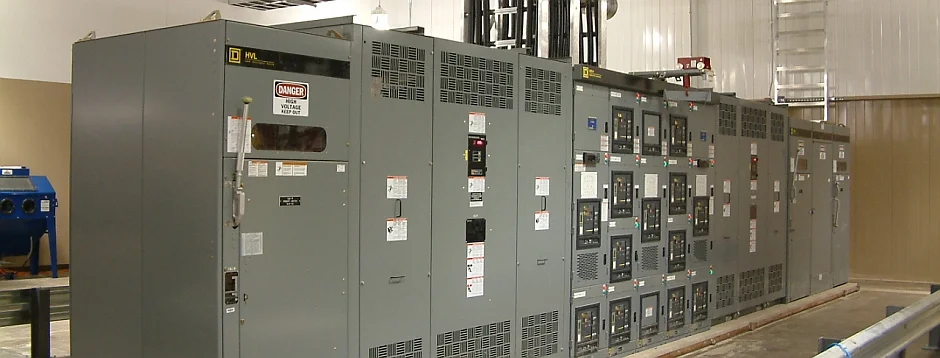Electrical Engineering
Electrical distribution and lighting design are key components of construction projects. Tri-Tech has the technical skills and resources available to provide you superior service. Our staff has acquired invaluable experience dealing with all varieties of electrical designs, from complex solar projects to simple office layouts and designs. Many successful projects have included low & medium voltage power distribution, fault current and arc flash studies, and specialty lighting designs. These projects have given our staff the knowledge and experience necessary to integrate current technology with proven design practices. Using this integrated approach to design, the engineering staff at Tri-Tech is able to implement the right technology in the right applications, which results in a cutting-edge final project for the owner. Some types of applications the staff at Tri-Tech are proficient in include specialty lighting controls, such as occupancy sensors, daylight harvesting, and integrated dimming systems, all of which function to provide energy efficiency in addition to adding flexibility to lighting controls within the facility.
Another impact of integrating technology and proven design practices is the energy savings. Our experience in designing projects to satisfy energy code requirements while maintaining an aesthetic appeal gives you a cost-effective way to complete both your engineering and construction within your budget. We have a history of successful projects that balance energy efficiency and building performance.
Mechanical Engineering
Proper provisions for personal comfort through temperature and humidity control are one of the most important aspects of any building system. In addition to creature comfort levels, the direct and indirect costs associated with maintaining a healthy environment are critical to the overall success of the facility. Through Tri-Tech’s design approach, the facility is modeled to represent the most optimal approach for proper conditioning. We work with the design team to establish proper orientation and building envelope features, including shading coefficients, glazing factors, and other features that impact the total energy consumption.
Tri-Tech approaches design elements by evaluating all aspects of the system, considering first costs, operational costs, and maintenance expenses, and then chooses the approach most beneficial to the owner. The engineering staff at Tri-Tech has extensive experience working with building management systems on multiple platforms, and regularly uses this experience to incorporate or modify total building management systems.
Overview of Technical Services
Building Services and Process Piping
Hydronic Water Systems
Water Conservation Studies
Chilled/Process/Reservoir Water Systems
Steam and Condensate
Compressed Air Systems
Specialty Pumping and Piping
Building Utility Maps
Utility Usage Surveys
Distribution Piping
Chemical Treatment Applications
Process Waste Systems
Special Gases
Underground Utility Surveys
Fire Protection Specifications
HVAC and Industrial Ventilation
HVAC Systems: VAV, VVT & CV
Energy Conservation Studies/Audits
Energy Code Compliance
Tank Ventilation
Dust, Smoke, Oil Mist and Fume Exhaust
High Pressure Conveying
Air Scrubbers and Dropout Chambers
Process Exhaust
Specialty Hood Designs
Indoor Air Quality
Replacement and Dilution Air
Heat and Smoke Vents
Industrial Plant Air Conditioning and Man Cooling Systems
High Pressure Low Volume Exhaust Ventilation
Electrical and Mechanical Room Ventilation
Clean Room Systems
Electrical Power, Lighting and Controls
Certified Energy Management Services
Power Distribution
Back-up Generator Selection
Specialty Interior Lighting
Site and Parking Lighting
Road and Highway Lighting
Panel Design and Layouts
Process and Motor Controls
Load Studies
PLC Programming
Operator Interface Systems
Computer Networks and Data
Communication Systems
Instrumentation
Troubleshooting
Explosion-proof and Intrinsically Safe Systems
Utility Surveys and Single Line Diagrams
Data Acquisition
Alarm Systems
HVAC Controls
Robotics
Return to Services


